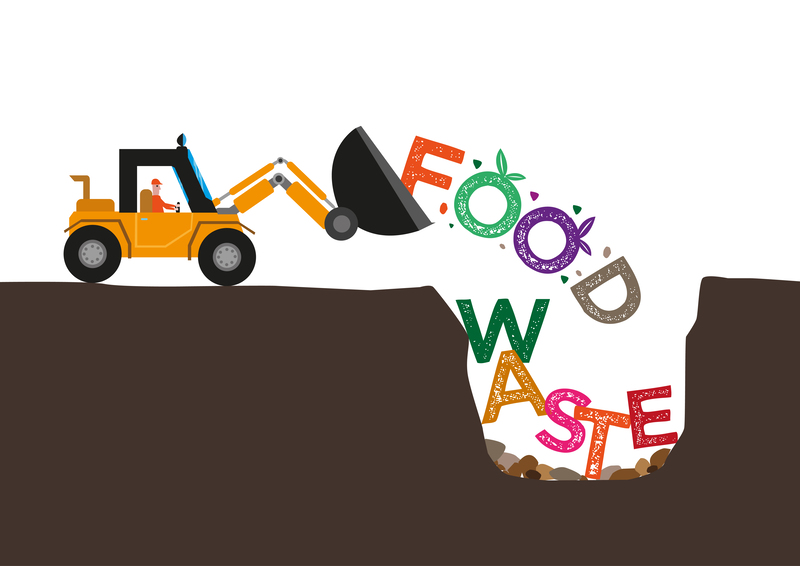The Relationship Between Waste Mismanagement and Ecosystem Damage
Waste mismanagement has become one of the most significant environmental challenges of the 21st century. As our planet faces increasing pressure from human activities, understanding the intricate link between waste handling and the health of our natural world is paramount.
Understanding Waste Mismanagement
To delve into this pressing issue, we must first define what constitutes waste mismanagement. Simply put, it refers to the incorrect or inadequate handling, processing, and disposal of waste materials. This can include failing to recycle, improper disposal of hazardous materials, and inefficient waste collection systems.
Types of Waste
- Municipal Waste: This includes everyday items such as food scraps, packaging, and clothing.
- Industrial Waste: Generated by manufacturing activities, it often contains harmful chemicals.
- Biomedical Waste: Produced by health care facilities, this waste can be infectious and requires careful handling.
- E-Waste: Discarded electronic devices that contain toxic substances like lead and mercury.

The Consequences of Poor Waste Management
The negative impacts of waste mismanagement are widespread, affecting both terrestrial and aquatic ecosystems. Here are some of the key consequences:
Land Pollution
Improperly managed landfills and illegal dumping result in severe soil contamination. Toxic substances leach into the ground, affecting plant life and entering the food chain. Heavy metals and chemicals can render soil barren and unfit for agriculture, further exacerbating food insecurity.
Water Pollution
Waste materials often find their way into water bodies through direct dumping or runoff. These pollutants can significantly degrade water quality, affecting both marine and freshwater ecosystems. The introduction of nutrients from waste can lead to the proliferation of harmful algal blooms, which deplete oxygen levels and cause fish die-offs.
Air Pollution
Burning waste or the decomposition of organic materials produces harmful gases such as methane and carbon dioxide, contributing to climate change. These processes release volatile organic compounds (VOCs) that result in smog, negatively impacting air quality and human health.
Ecosystem Damage and Biodiversity Loss
The ecosystem damage resulting from waste mismanagement leads to a significant loss of biodiversity. This occurs when habitats are contaminated or destroyed, leaving wildlife with nowhere to go.
Habitat Destruction
- Deforestation as land is converted to dumpsites.
- Destruction of wetlands that serve as crucial habitats for many species.
These habitat disruptions can drive species to extinction, as they struggle to adapt to changing environments or compete for scarce resources.
Impact on Marine Life
Marine ecosystems are particularly vulnerable to waste pollution. Plastic waste is a significant threat, choking marine life and disrupting food chains. Microplastics are ingested by marine organisms, ultimately reaching humans through seafood consumption.

Sustainable Waste Management Solutions
Addressing waste mismanagement requires a collective effort from governments, industries, and individuals. Here are some key strategies to mitigate its impact:
Recycling and Reusing
- Implementation of comprehensive recycling programs to reduce the volume of waste.
- Encouraging the use of recycled materials in production processes.
Innovative Technologies
Developing new technologies for waste processing can significantly reduce the environmental impact. Initiatives such as biodegradable materials and advanced waste-to-energy conversion systems are paving the way for a more sustainable future.
Policy and Regulation
Effective waste management requires robust policy frameworks. Governments must enforce regulations on waste disposal and incentivize sustainable practices. International cooperation is also critical, as waste mismanagement knows no borders.
Public Awareness and Education
The role of the public cannot be understated in achieving long-term sustainability. Educating communities about the effects of waste on ecosystems and promoting responsible consumption is essential.
Conclusion
The link between waste mismanagement and ecosystem damage is undeniable. As stewards of the Earth, it is our responsibility to rectify these practices and safeguard our planet's future. By implementing sustainable waste management practices and fostering a culture of awareness, we can significantly reduce the detrimental impacts of waste on ecosystems and ensure a healthier environment for generations to come.
In conclusion, the challenge of waste mismanagement is significant, but with collective action and innovative solutions, we can mitigate its effects and protect the rich diversity of life that our ecosystems harbor.